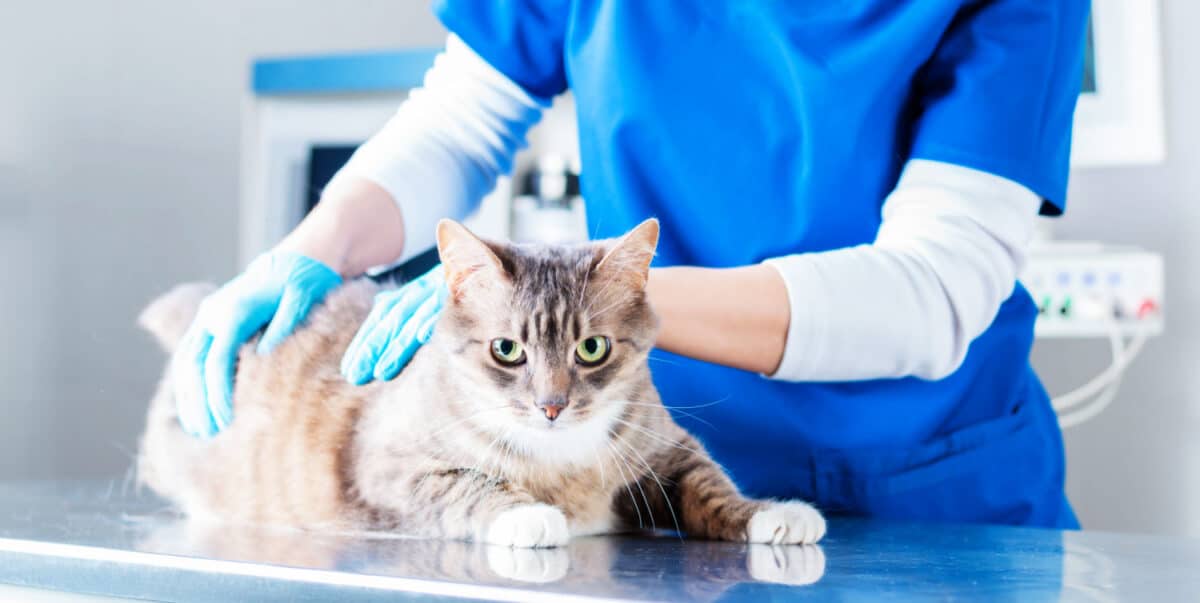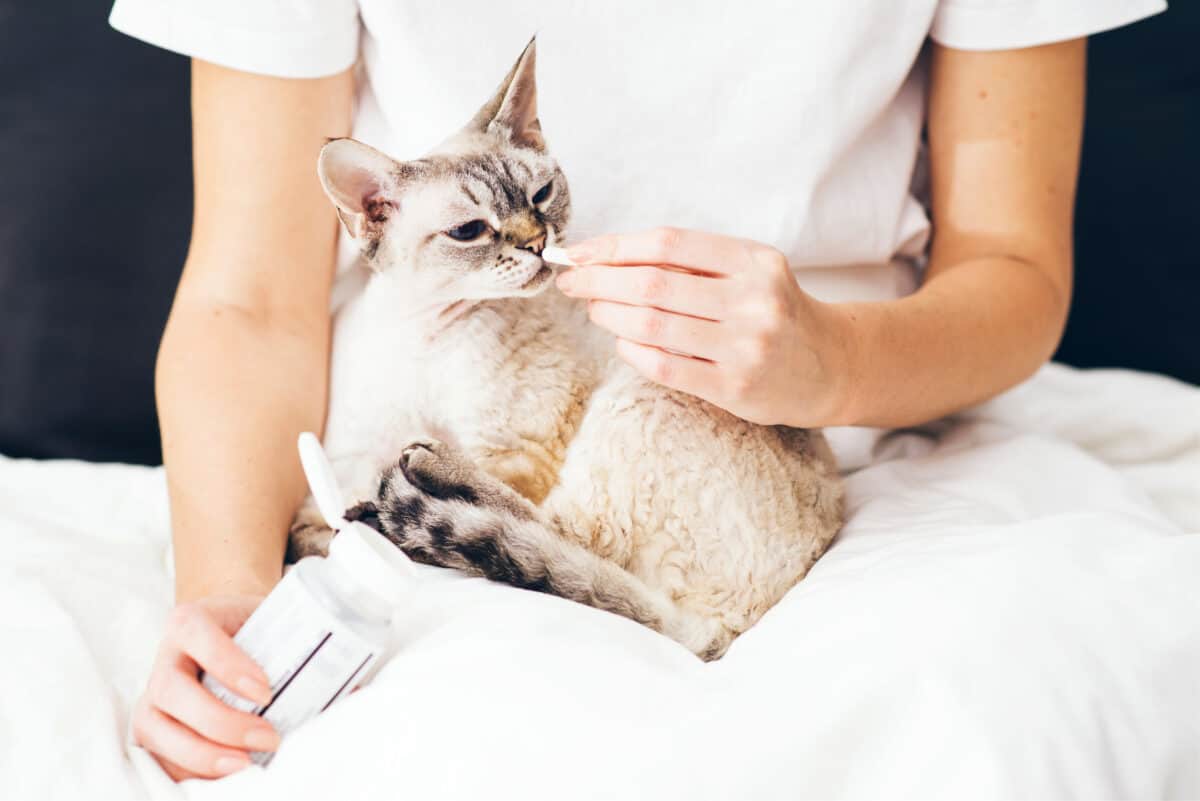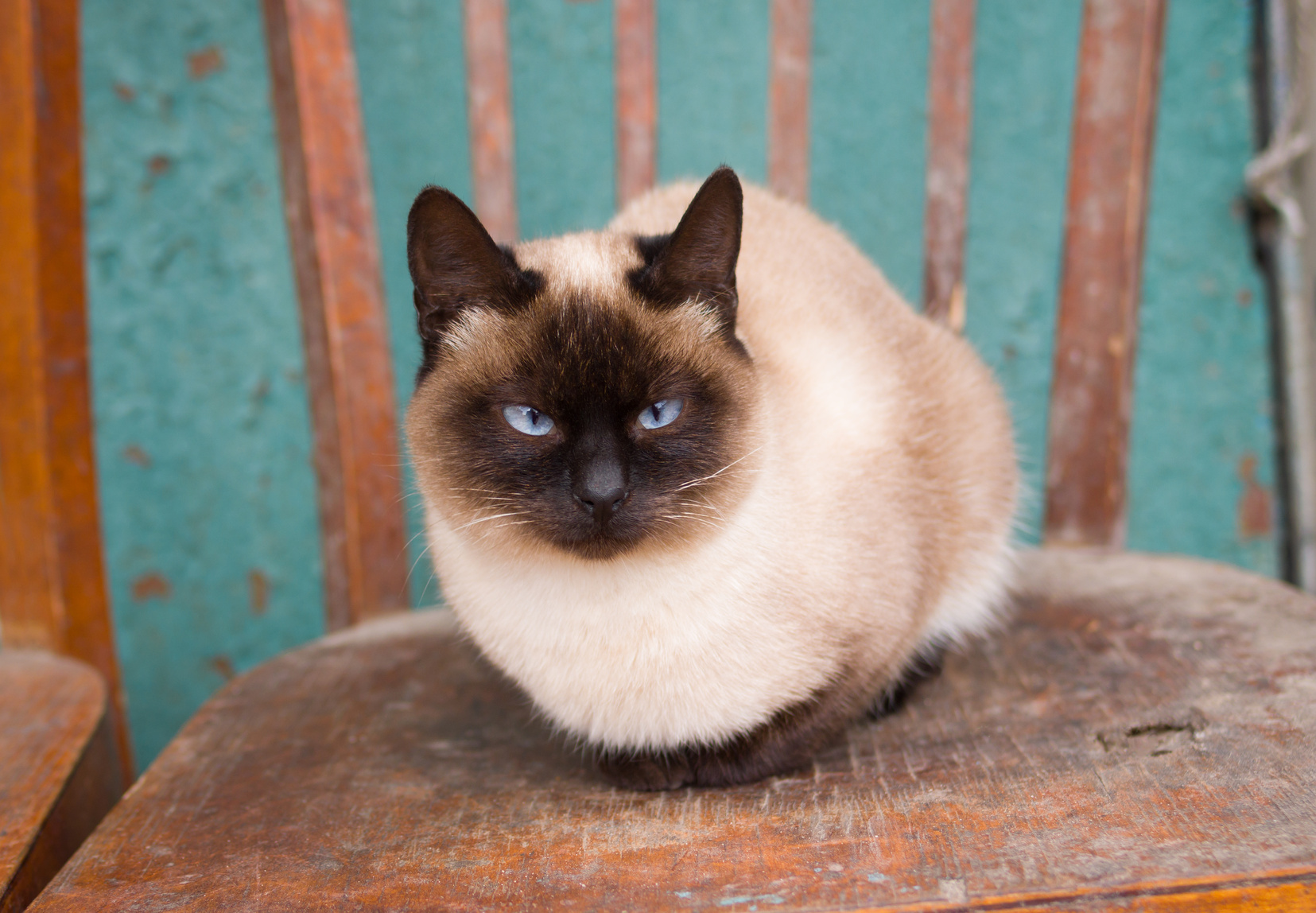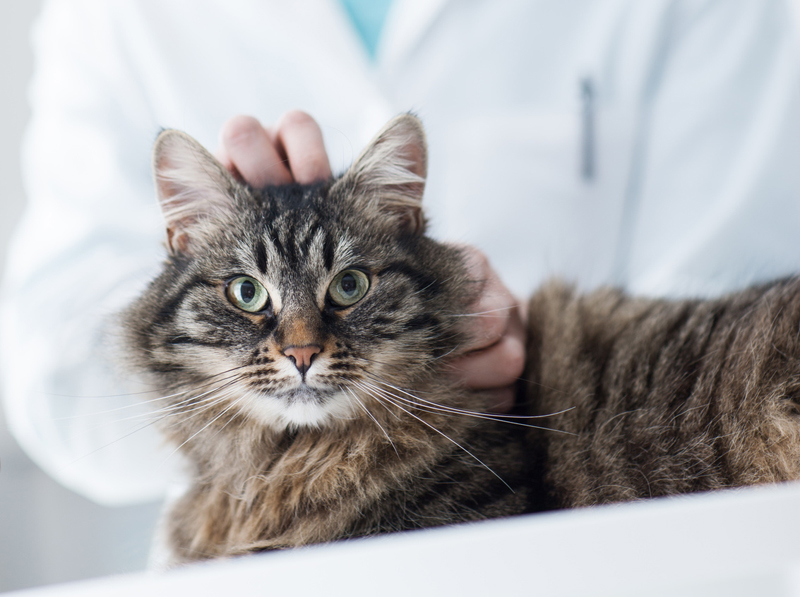Welcome to our comprehensive guide on Giardia and Giardiasis in cats! If you've noticed your furry friend showing some unsettling symptoms, you might find answers here.
We will explore what Giardia is, how it affects your cat and some common signs that can signal its presence. We'll also touch on how this tiny parasite makes its way into our homes, and crucially, the steps you can take to help your cat recover.
Read on for insights and solutions to keep your beloved pet healthy. Let's get started!

Giardia And Giardiasis In Cats
If your cat has recently been diagnosed with Giardia, or even if you just suspect he or she might have it, you're probably fraught with questions. How dangerous is Giardia?
Can I get it from my cat? What do I need to do to get rid of Giardia in my home?
Giardiasis is an intestinal infection caused by a parasite. The main symptoms are diarrhea, abdominal pain and sometimes vomiting.
However, many conditions can cause these symptoms, so only your veterinarian can actually diagnose giardia.
In contrast to worms or bacteria, Giardia is a microscopic, single-celled protozoan. The infestation process begins when your cat ingests the parasite. Once inside the body, it journeys to the intestines, firmly attaches to the intestinal lining, and multiplies.
That's Giardia in a nutshell. Let's take a closer look to learn more about diagnosing, treating, and preventing this infection.
Spotting the Signs: Symptoms of Giardia in Cats
The unwelcome parasite, Giardia, targets your cat's digestive system, resulting in a few distinct signs.
The Onset f Diarrhea
One of the most common indicators is diarrhea. Often, this may start as soft stools before becoming more severe.
Diarrhea can be inconsistent, starting and stopping without warning, leading to misinterpretations. You may think, "Oh, my cat must have eaten something off."
But remember, even if the symptoms subside, the parasite might still be lurking within.
Abdominal Discomfort
Another common symptom is abdominal pain. However, detecting this in your cat can be tricky.
If you're not sure how to tell if your cat has stomach pain, read our guide: 35 signs that your cat may be in pain.
The Problem Of Dehydration
Dehydration is a serious concern, especially if diarrhea persists. How do you know if your cat is dehydrated?
Look for signs like disorientation, loss of coordination, panting, and a lack of activity. Additionally, if your cat's skin stays pinched when you gently lift it, that's a classic sign of dehydration.
They may also have sunken eyes, loss of appetite, dry mouth, and a rapid heartbeat.
Instead of being her usual self, Kitty may sleep even more and move around less.
Like humans, cats could go without food for a short time, but water is essential to blood circulation, digestion, elimination, and brain function, as water makes up 80% of a cat’s body.

The Challenges in Diagnosis
Giardia attacks the cat's digestive tract, bringing on some or all of the following:
The Main Culprit: Diarrhea
Diarrhea resulting from Giardia is distinctive. It often comes on suddenly, emitting a foul odor, sometimes has a greenish color, and could even contain traces of blood.
The consistency of the stools can vary, and there may also be some mucus.
The Rollercoaster of Symptoms
Symptoms of Giardia can be dramatic or subtle, continuous or intermittent.
This is what often delays diagnosis and treatment. Just as you’ve decided Kitty needs a trip to the vet, diarrhea stops.
The first thing that comes to mind is, “He must have eaten something he shouldn’t have and now is over it.” In fact, the parasite is still there, but just not as obvious.
More acute forms of chronic diarrhea due to giardiasis can develop in cats with weaker immune systems, such as kittens, senior cats, and FIV or FeLV cats.
Chronic Giardia can lead to life-threatening diarrhea due to the resultant dehydration.
Don't Jump to Conclusions: Confirm with Tests
The best way to be sure just what is the cause of diarrhea is to have the veterinarian do a swab test. Inflammatory Bowel Disease (IBD), an inability to absorb nutrients from food, and malnourishment could be other causes.
Fecal testing can have false results so you think your cat is healthy while parasites are still present. This can be the fault of the test or because parasites don’t show up in every swabbing.
If Kitty has been tested and pronounced healthy, but still has chronic diarrhea, before jumping to the conclusion it’s something else, ask for a fecal antigen test in addition to a regular fecal float. It checks for any giardia antigens present.
Remember, diagnosing and treating Giardia or any other condition promptly and effectively is critical for your cat's health and well-being.
SIGN UP FOR THECATSITE'S EMAIL UPDATES >
How Cats Become Infected with Giardia
Giardia, a pesky parasite, finds its way into cats in various ways.
Contact with Infected Feces
One common route of infection is through contact with contaminated feces.
The parasites, in their cyst form, are shed in feces and can easily infect other animals that come into contact with it.
Living Conditions and Environment
The environment can play a huge role in the spread of Giardia.
It thrives in cool, damp conditions, making animal shelters a hotbed for transmission due to close living quarters and high exposure.
For dogs, if a shelter hoses down the floor where a dog has pooped, and the dog then licks up some of the water, he could acquire the cysts.
In a home situation, only 11% of cats have the parasite.
Grooming: A Hidden Risk
Grooming can also lead to transmission. If your cat grooms an infected cat, they can contract the parasite too.
The Damage Done by Giardia
Once inside, Giardia can cause significant damage to the lining of the intestines, disrupting the digestion and absorption of food.
It's noteworthy that many cats diagnosed with Inflammatory Bowel Disease (IBD) have a history of Giardia infections.
Treating Giardia: Effective Strategies for Cat Owners
Once diagnosed with Giardia, your cat's road to recovery begins.
Medication: The First Line of Defense
Your vet will prescribe an effective treatment plan, likely including antibiotics like Metronidazole (Flagyl) or Panacur. These drugs will help to combat the parasite.
The Importance of Hygiene
Hygiene is crucial in preventing re-infection. Giving your cat regular baths can help minimize the risk, especially as your cat sheds the cyst parasites.
Attention to Detail: Cleaning and Care
Even if bathing isn't an option, you should still maintain high levels of cleanliness.
Thoroughly clean the litter box, and remember to wash your hands before and after handling your cat's litter or food.
This vigilance ensures that you minimize the risk of re-infection and keep your cat on the path to recovery.

The Essential Home Cleaning Regime For A Giardia Outbreak
Dealing with a pet diagnosed with Giardia involves a significant emphasis on hygiene, not just for your pet but also for your home.
Daily Disinfection: A Must
Don't panic if your pet has Giardia, but be prepared for an uptick in your cleaning routine. The parasites may have been introduced into your home through your pet's feces.
To tackle this, disinfect items that might be contaminated.
According to the CDC, you should disinfect the following items daily:
Keep the Litter Box Clean
Focus especially on the edges of the litter box where the parasite could be lurking.
Food and Water Dishes
Food and water dishes should be thoroughly cleaned daily.
Don't Forget the Toys and the Bed
Your pet's toys and beds are potential hotspots for Giardia and require daily cleaning.
Linens and Favorite Spots
Clean the linens and other places in your home where your pet enjoys spending time.
This daily cleaning and disinfecting should continue for the duration of your pet's illness and for a few days after the last course of antibiotics.
The Risk of Giardia Transmission from Cats to Humans
While humans can become sick with Giardiasis, fortunately, the strains that attack cats and dogs are different.
This means the risk of contracting Giardia from your cat is small. Nevertheless, you should practice good hygiene when handling your sick cat. The CDC suggests these safety measures:
Basic Preventive Measures
The CDC recommends frequent and thorough hand washing and disinfection of household items your pet has been in contact with.
Regardless of Kitty's illness, the CDC also suggests that you wear gloves when working in the garden as you could contract human strains of Giardia right in your backyard (nothing to do with your cat!)
A Final Note on Dealing with Giardia
Giardia, though common and typically treatable, can pose a challenge in diagnosis and can even be lethal for kittens or cats with weakened immune systems. Early treatment and a thorough cleaning routine are key to managing this infection.
If your pet develops diarrhea, consult your vet promptly. Swift diagnosis and treatment of Giardia (or any other ailment) are essential to your pet's health and recovery.
Now, it's your turn to share - if you've ever had a pet diagnosed with Giardia, share your experiences below to help others facing the same situation.
A Final Note On Dealing With Giardia
Giardia is a common infection, often easily treated but not so easily diagnosed. While antibiotics can be effective, there are resistant strains out there.
It can even be lethal in kittens or cats with a weaker immune system. Keep Giardia at bay by treating quickly and sticking to a good cleaning regime.
If Kitty develops diarrhea, a trip to the veterinarian is warranted. Diagnose and treat Giardia - or any other ailment - quickly and effectively!
Over to you:
Have you ever had a cat diagnosed with Giardia? Share your experience in a comment below so others can see it too.
And if you're currently dealing with Giardia and need help, please use the cat forums for that (we can't answer questions posted as article comments).
SIGN UP FOR THECATSITE'S EMAIL UPDATES >
Note: We may get commissions for purchases made through links on this page.


![Ringworm in a cat, How to deal with ringworm in cats [Inc. The Housecleaning Regime]](https://thecatsite.com/c/wp-content/uploads/2014/09/ringworm-260x170.jpeg)

4 comments on “Giardia And Giardiasis In Cats [Steps to Handle This Pesky Parasite]”